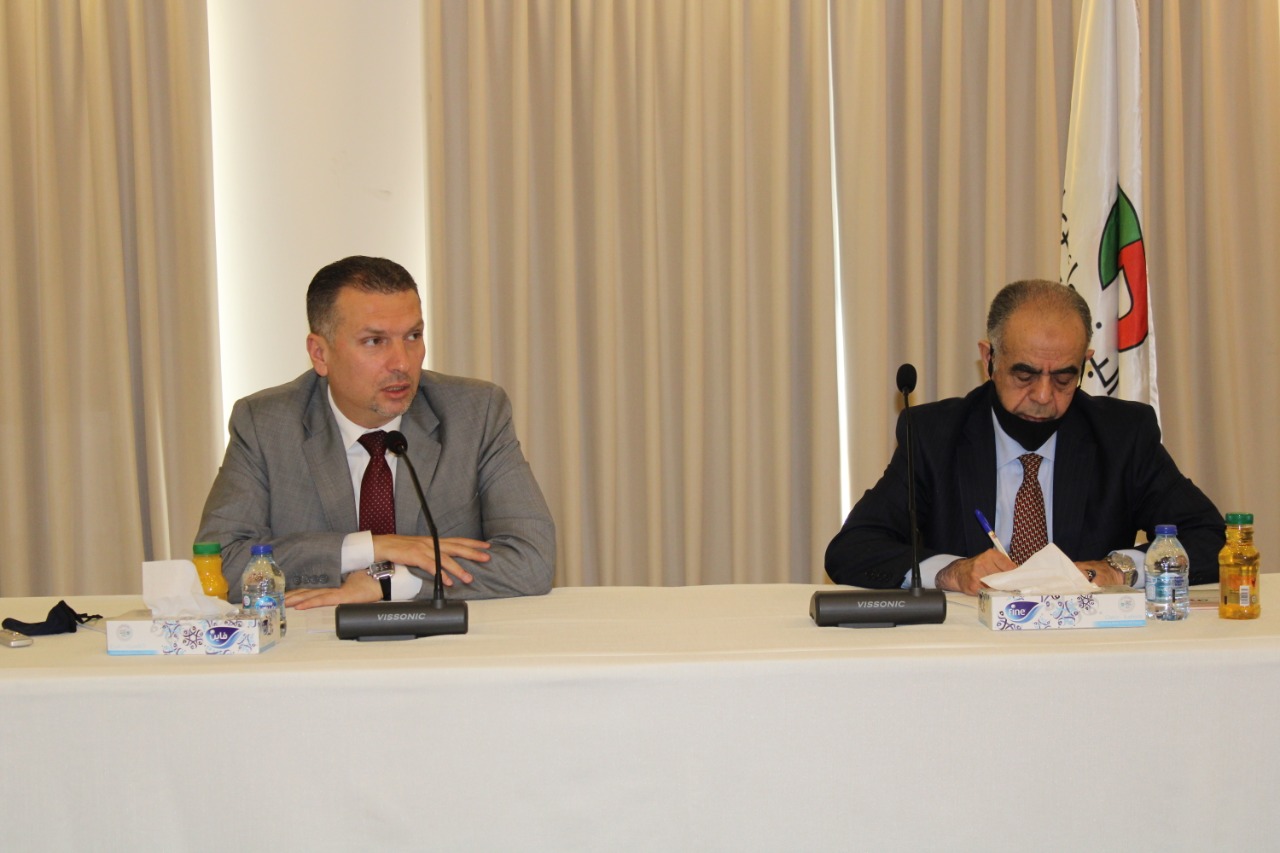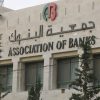
A discussion session on Islamic bonds was held at the headquarters of ABJ on Monday, 22/3/2021 in cooperation with the Economic and Social Council aiming at addressing recommendations, applications and mechanisms of increasing such a key financing source.
Dr. Maher Al-Mahrouq thanked in his speech the Economic and Social Council, represented by His Excellency Dr. Muhammad Al-Halaiqa, for its cooperation with the Association in organizing the session, and he welcomed the attendance of Islamic banks and the Jordanian banking sector.
Al-Mahrouq said that Islamic bonds is one of the important Islamic financing tools that have witnessed rapid growth in recent decades in many countries of the world due to its role in countries’ economies as unconventional, safer and stable financing tools that finance the treasury and stimulate financial markets in addition to financing development and infrastructure projects. He pointed out that there are many experiences around the world that have proven the possibility of using bonds in building new projects or expanding existing ones in various fields, especially infrastructure projects, such as building roads, bridges, public buildings and others. Locally, although the idea of issuing Islamic bonds dates back to the eighties of the last century, the issuance of the first Islamic finance bonds law came in 2012, after which regulations and executive instructions were issued to complete the system of legislation governing Islamic sukuk in the Kingdom.
Al-Mahrouq emphasized the great readiness of Islamic banks in Jordan to issue Islamic bonds as banks had previously amended their articles of incorporation and association in a way that would allow them the opportunity to issue Islamic bonds and everything related to their issuance or investment to contribute to supplying the banking market Jordan with new financing tools that provide solutions to the needs of government institutions and companies. He also pointed out that the high levels of liquidity in Islamic banks and the inability to employ it in the areas that traditional banks resort to make the liquidity costs high for Islamic banks. This means that the availability of financing opportunities to exploit this liquidity through Islamic bonds is in the interest of Islamic banks, beneficiaries and the national economy as a whole. Al-Mahrouq stressed the need to enhance the benefit of this important funding source by expanding the issuance of Islamic bonds, especially tradable bonds, and encouraging the government to finance part of its financial needs through the issuance of Islamic bonds.
Dr. Muhammad Al-Halaiqa, President of the Economic and Social Council, pointed out that the bonds sector has become one of the fastest growing and widespread sectors in many countries in addition to the importance of using bonds as an effective tool in the field of development and investment. He indicated that benefiting from the Islamic bonds sector in Jordan is limited despite its significance explaining that economy needs new financing tools.
Representatives of Islamic banks in Jordan participated in the session in addition to a distinguished group of economic experts in this field. The participants in the session pointed out the need to shed light on the bonds sector for its role in development projects. Moreover, they stressed the need to find financial means to get out of the economic crisis, in light of the Corona pandemic and the need to amend some laws to remove obstacles to the issuance of bonds.
Participants also pointed out the importance of benefiting from global experiences in the bonds sector and studying its applications, researching the legislative reality and studying its impact on the bonds market in addition to spreading awareness regarding such a sector among citizens.





